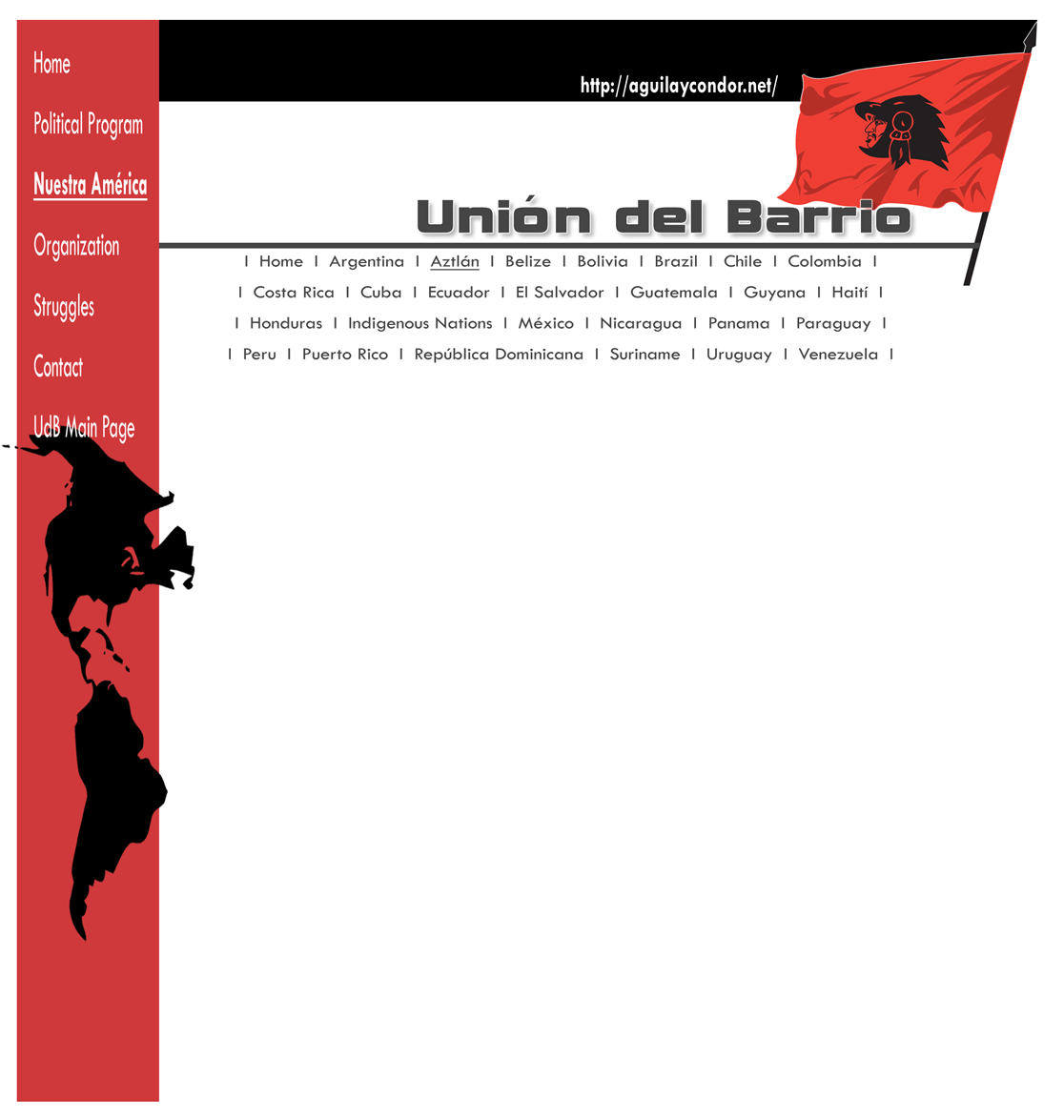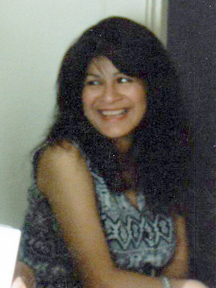
Mujeres en Lucha - Patricia Marín, Main Page. October 2, 1952 to December 19, 1995. On the evening of December 19, 1995, Patricia Marín passed away in her sleep. Patricia was a leading member of Unión del Barrio, the National Chicano Moratorium Committee, the Chicano Mexicano Prison Project, Unión del Barrio Women's Commission (since renamed the Comité de Mujeres Patricia Marín), the Raza Rights Coalition, and participated in many other ways in the struggle for Raza Liberation. Commemorating the 15th Anniversary of her passing, we proudly dedicate this section of aguilaycondor.net in her honor.
Brief Autobiographical Sketch:
Life Experiences Can Eventually Produce Organizers
Note: The following is an excerpt from an autobiographical statement that Patricia Marin wrote on December 3, 1993, as part of a course she was enrolled in at the time.
At age thirty I began to take community college classes. I had intentionally planned to take typing classes “just to get by” in order to find any type of clerical work. This was my first response to the crisis situation that I was in. After being financially dependent on welfare services on and off for over ten years, I found myself in a situation that was overwhelming. My husband of nine years, who was addicted to drugs, literally left me, and my three sons, on our own. My job skills and experience were very limited. A year after he had left, I was finally convinced by a friend to take college classes with her. Without any long term goals or objectives, I enrolled in classes that were “safe” for me.
Later on, while taking additional classes at Rancho Santiago College [in Orange County, CA] I encountered a counselor (who is now a good friend) that would offer me not only academic guidance, but much more. He assisted and nurtured the development of my confidence, self-esteem, and perseverance. He saw in me strength and courage, and he really believed that I could make it. It took me some time before I saw this in myself, yet it happened.
I still struggle with day-to-day issues, but a major difference is that now I know how to deal with them, and incorporate these differences into my educational and life plans. I would very much like to assist and influence students in similar ways that my friend [I.G.] did for me and for so many other students. Giving back to my community is important, and this is one way I want to carry this on. The specific population that I would like to work with is the Chicano Mexicano population. Being Chicana, I can identify with having to deal with the barriers of social, economic, and racial issues, problems that my community faces in pursuing higher education. A great number of our people are faced with ongoing oppression, poor housing, inadequate health care, discrimination, low paying jobs, and the list continues. Unless these problems are addressed, then these contradictions will continue to rise. This can be seen in the increased drop-out rates, drug use, and violence among our young people. Counselors should be able to address these concerns. Today’s Chicano Mexicano youth are faced with stereotyping, prejudice, peer pressure, and not enough positive role models in their lives. I have personally experienced these barriers, and see that these situations have worsened drastically these last years.
My personal experiences (whether negative or positive), and my commitment to the political advancement of the Chicano Mexicano people, will help me in my future work, especially in turning negative situations into a learning experience that leads to possible solutions. For example, two years ago another serious problem came about from within my family. For two years my home environment was stressful and sometimes violent. My personal experiences and what I’ve learned in school enabled me to survive this crisis. These life experiences, I have learned, are what can eventually produce organizers.
Over the years, through my community organizing, I have been introduced to the writings of several radical writers, and I learned that the organizer’s personal experiences can become the basis for teaching others. For an organizer to teach is an art, one that is learned through the experiences of others; not at their expense, but to create an environment where everyone can develop.
GO TO SECTION MAIN PAGE (Return To "Patricia Marín").
 |
|
Nuestra América, "Patricia Marín": Other Related Media for Download: |
|
External Links: - ¡La Verdad!. |
|
Internal Links: - Glossary. |